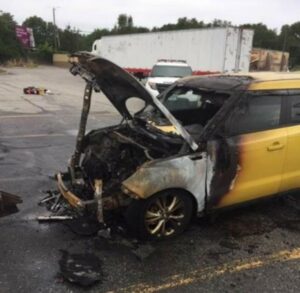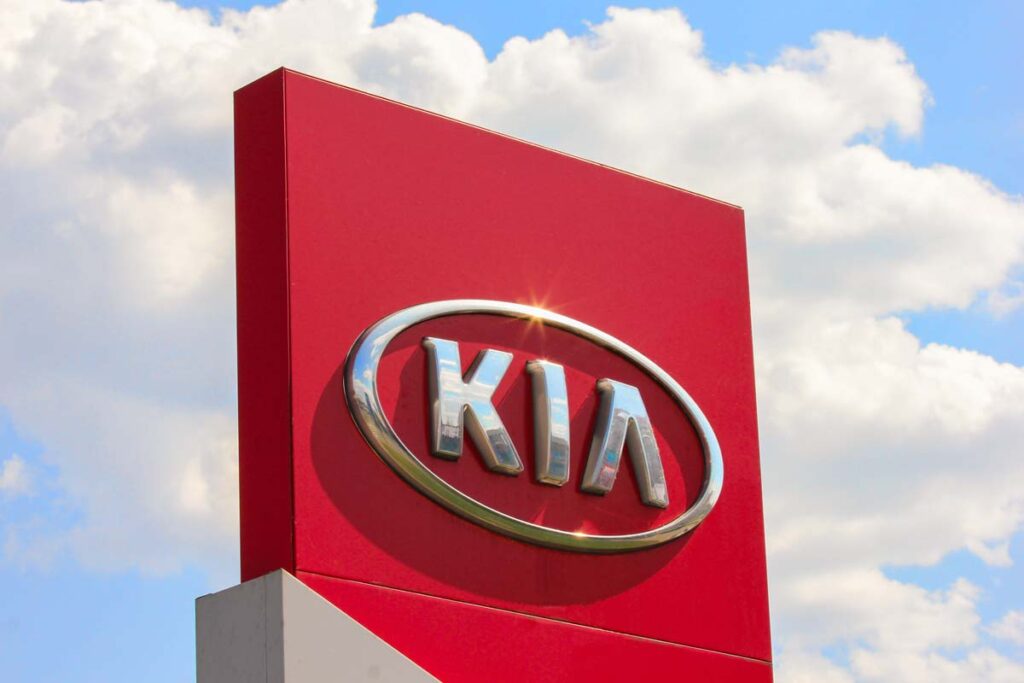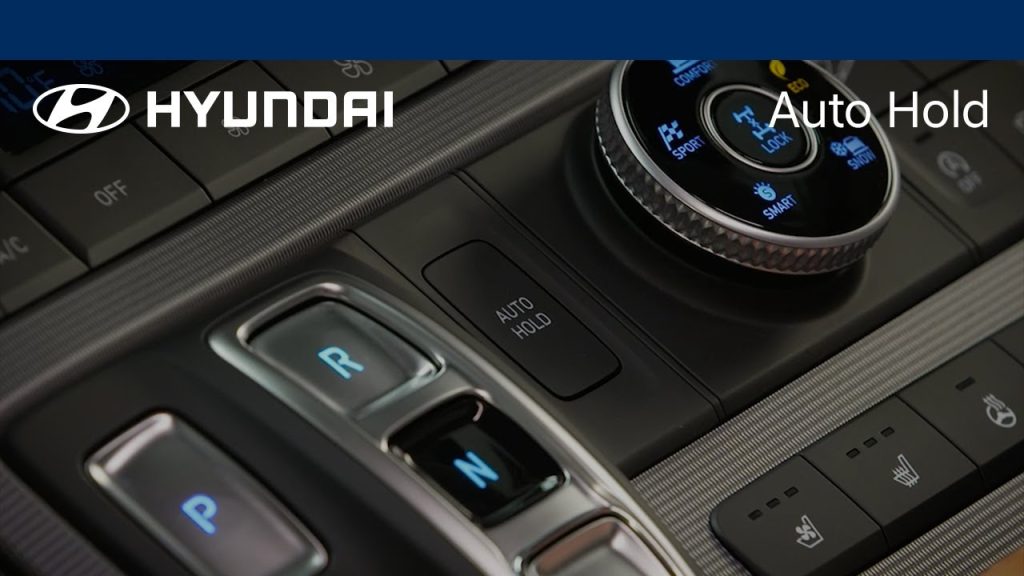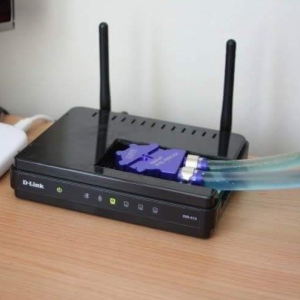The Hyundai Engine Class Settlement addresses issues with certain vehicle engines. Affected owners may receive warranty extensions and reimbursements.
Hyundai has reached a settlement concerning its Theta II engines, which are integral to numerous models across the Hyundai and Kia brand. The litigation identified a defect that may cause engine failure, posing potential safety risks and steep repair costs.
The settlement aims to alleviate the financial strain on consumers who experienced engine failure due to manufacturer defects. It covers an array of models manufactured over several years and offers extended warranty provisions, compensation for past repairs, and even a buyback program for certain vehicles. Owners and lessees of affected Hyundai and Kia models should understand the eligibility criteria and claim process to take advantage of the benefits provided by the settlement.
Hyundai’s Engine Woes
Hyundai’s Engine Woes have sparked concern and conversation among car owners and industry watchers alike. Issues with Hyundai engines have led to a significant legal battle, where car performance and safety are at the forefront. Thousands of customers found themselves facing unexpected engine failures, power loss, and even fire hazards.
Background Of The Litigation
In the legal spotlight, Hyundai’s engine troubles turned into a collective outcry for justice. Owners with faulty engines demanded answers, and legal action ensued. A class action lawsuit came to life, alleging that Hyundai sold vehicles with defective engines. These engines were prone to seizing, stalling, and risking the safety of everyone on the road.
The Faulty Engine Models
Specific models caught the eye of scrutiny. At the heart of the issue were engines known for their unexpected failures. Theta II engines, found in popular models like Sonata and Santa Fe, were among those listed. Here’s a quick snapshot of affected vehicles:
| Model Year | Vehicle Model | Engine Type |
|---|---|---|
| 2011-2019 | Sonata | Theta II |
| 2013-2019 | Santa Fe Sport | Theta II |
| 2014-2015 & 2018-2019 | Tucson | Theta II |
| 2019 | Veloster N | Theta II |
The vehicles listed all shared the same controversial engine type – Theta II. These models became central to the litigation that unfolded. Owners raised their voices, and the stage was set for a resolution that could impact thousands.
The Class Action Lawsuit
The Hyundai Engine Class Settlement has made headlines as owners stand against engine issues. A class action lawsuit emerged, as drivers reported safety concerns. This settlement seeks justice and highlights the need for corporate accountability.
Plaintiffs’ AllegationsPlaintiffs’ Allegations
Multiple Hyundai car owners claimed their vehicles had defects. They shared stories of engines failing unexpectedly. These issues caused safety risks and financial burdens. The allegations include:
- Engine seizure: Cars stopping without warning.
- Stalling: Vehicles lose power while in motion.
- Increased accident risks: Sudden engine problems pose danger.
- Expensive repairs: Out-of-pocket costs for engine overhaul.
Hyundai’s Response
Hyundai acknowledged the lawsuit with seriousness. They committed to investigating the claims. Hyundai’s response includes:
- Reviewing each customer complaint.
- Offering warranty extensions for affected models.
- Providing software updates to improve engine performance.
- Issuing recalls where necessary.
The company aims to restore trust and ensure customer safety. Hyundai strives for resolution outside the courtroom.
Key Aspects Of The Settlement
The Hyundai Engine Class Settlement marks a significant development for Hyundai car owners. This section dives into the essential components of the settlement, guiding impacted parties on what to anticipate.
Financial Compensation
Financial relief represents a core element of the settlement. Hyundai owners may expect:
- Cash payments for past repairs.
- Compensation for those who sold their vehicles.
- Rebate vouchers for future Hyundai purchases.
Extended Warranties
The settlement extends the lifespan of warranties. Key highlights include:
| Original Warranty | Extended Warranty |
|---|---|
| 5 years or 60,000 miles | 10 years or 120,000 miles |
It covers engine repairs, replacements, and certain engine-related maintenance.
Reimbursement Policies
Hyundai provides reimbursements for specific costs:
- Towing to authorized Hyundai dealerships.
- Rental cars during repair times.
- Out-of-pocket expenses linked to the covered engine issues.
Eligibility For The Settlement
If you’ve owned or leased a Hyundai vehicle, you may be part of a settlement due to engine issues. The Hyundai Engine Class Settlement provides compensation to certain car owners and lessees. Below, find out if you qualify as a class member and understand any exclusions or exceptions that may apply.
Criteria For Class Members
To be eligible for the Hyundai Engine Class Settlement, individuals must meet specific criteria:
- Ownership: Owned or leased a Hyundai with a Theta II 2.0-liter or 2.4-liter gasoline direct injection engine.
- Model Years: Vehicles from certain model years are included.
- Timeframe: Must have owned or leased the car by a specified deadline.
Exclusions And Exceptions
While many may qualify for benefits, there are specific exclusions:
- Subsequent Owners: Those who bought the car after a certain date may be excluded.
- Commercial Use: Vehicles used for certain commercial purposes might not qualify.
- Non-Theta II Engines: Other engine types do not fall under this settlement.
To confirm your eligibility, check your vehicle’s VIN or contact the settlement administrator.
Impact On Hyundai Owners
Many Hyundai owners faced unexpected engine failures. This settlement brings hope and solutions. Owners can now breathe easy, knowing assistance is on the way. Relief comes in several forms, addressing past and future concerns. Let’s dive into the specifics.
Relief for Affected ConsumersRelief For Affected Consumers
- Reimbursements for repairs and towing costs
- Free engine replacements for certain models
- Extended warranties to cover future issues
Owning a Hyundai now carries new peace of mind. The settlement directly responds to owner concerns. Compensations reflect the brand’s commitment to resolve these issues. Your vehicle’s reliability and safety remain a top priority.
How to Claim BenefitsHow To Claim Benefits
Claiming benefits is a straightforward process. Follow these steps to ensure you receive what’s due:
- Gather repair documents and proof of costs.
- Fill out the claim form provided by Hyundai.
- Submit your claim by the deadline mentioned.
Hyundai will review and process claims promptly. For current owners, act fast to claim your benefits. For previous owners, check eligibility for past expenses. Visit the official settlement website for detailed information.
Legal Representation And Attorneys
Seeking justice in a class-action lawsuit requires specialized lawyers. These legal professionals represent many people with similar claims against a company. In the case of the Hyundai Engine Class Settlement, skilled attorneys played a crucial role in navigating the complex legal landscape.
Role Of Class Action Lawyers
- Manage the Lawsuit: Lawyers coordinate the case, filing the lawsuit and representing the class members.
- Gather Evidence: They collect necessary documentation to support the case.
- Communicate: Attorneys keep class members informed about the case’s progress.
- Negotiate Settlements: They work to secure compensation for affected parties.
Legal Fees And Payouts
Class action lawsuits involve clear guidelines regarding legal fees and payouts. Here’s what you should know:
| Legal Fees | Payouts to Class Members |
|---|---|
| Typically a percentage of the settlement amount | Compensation varies depending on the case’s specifics |
| Court-approved to ensure fairness | Subject to terms outlined in the settlement |
Clarity in legal fees and payouts is crucial for class members to understand potential compensation.
Timeline Of The Legal Proceedings
Exploring the timeline of the legal proceedings behind the Hyundai Engine Class Settlement uncovers a series of critical steps. These events mark a long journey of litigation and negotiation that eventually led to a resolution for many affected car owners. Let’s take a closer look at how this lengthy legal battle unfolded.
Initial Filing
The case’s inception was marked by the first lawsuit filed against Hyundai. Owners alleged that certain vehicles had engine defects. These defects potentially led to engine failure and safety risks. This legal action set the stage for what would become a comprehensive litigation process.
- Date of Filing: The exact date of the initial lawsuit.
- Plaintiff Allegations: A summary of the claims made by the vehicle owners.
- Vehicles Included: A list of the affected models cited in the lawsuit.
Settlement Agreement
After rounds of negotiations, a settlement agreement was achieved. This milestone represented a significant step towards resolution. The agreed terms included compensation for affected owners. It also promised engine repairs and warranty extensions. This was a decisive moment that outlined the relief options for the class members.
| Date of Settlement | Benefits to Class Members | Warranty Extension Details |
|---|---|---|
| Settlement announcement date | Compensation amounts, repair services | Specific years or mileage covered |
- Notification to Class Members
- Claim Filing Procedures
- Deadline for Benefit Claims
Reaction From The Automotive Industry
The automotive industry has closely followed the Hyundai Engine Class Settlement. This event impacts not only Hyundai but reverberates through the whole sector.
Competitors’ Observations
Key players in the car market have their eyes on Hyundai’s recent settlement. Competitors are evaluating their own practices. They ensure customer trust remains intact. Many companies are also reviewing their warranty policies and customer service protocols in response.
Transparency and customer communication come to the forefront. These are essential to maintaining a strong brand reputation. Observers suggest that proactive strategies may now become a norm.
Industry Safety Standards
The settlement shines a light on safety standards across the industry. Manufacturers are prompted to review and tighten their safety practices. This ensures that their vehicles meet or surpass current expectations.
- Vigilance in quality control checks
- Emphasis on real-world testing
- Improved response to customer feedback
Regulatory bodies may also revise guidelines. This ensures incidents like this serve as a learning opportunity. Better standards benefit everyone on the road.
Modification Of Hyundai’s Engine Manufacturing
The Hyundai Engine Class Settlement brings a spotlight on Hyundai’s commitment to automotive excellence and customer trust. Recognizing the need for enhancements, Hyundai has made substantial modifications to their engine manufacturing process.
Changes In Production
Hyundai’s production lines have undergone significant updates. The company has introduced new technologies to refine their engines. These changes aim to improve performance and reliability for drivers worldwide.
- Advanced materials: The engines now feature sturdier components that withstand rigorous use.
- Revised designs: Hyundai has optimized engine structures to enhance durability and efficiency.
- Streamlined assembly: Manufacturers follow meticulous processes to ensure each engine meets high standards.
Quality Control Enhancements
Quality assurance remains a top priority for Hyundai. The settlement has resulted in increased scrutiny and testing protocols.
| Aspect | Enhancements |
|---|---|
| Inspection Practices | More rigorous checks at every production stage. |
| Diagnostic Systems | State-of-the-art tools for early detection of issues. |
| Expert Training | Engineers receive up-to-date instruction on the latest manufacturing methods. |

Credit: www.drive.com.au
Future Implications For Car Manufacturers
The Hyundai Engine Class Settlement marks a pivotal moment for automakers globally. This benchmark case outlines accountability and paves the way for industry advancements. Car manufacturers must navigate operational changes and consumer trust hurdles. Here’s how the settlement is reshaping the landscape:
Lessons Learned
Transparency boosts brand loyalty. Hyundai’s experience signals a shift towards openness. Car makers realize consumers value honesty over perfection. Proactive issue management is key. Addressing problems before escalation saves resources and reputation. As a result, manufacturers are tightening quality controls and customer service protocols.
Regulatory Changes
Tougher standards emerge to ensure safety and reliability. Regulators may tighten scrutiny post-settlement, leading to stringent compliance checks. Manufacturers are adopting advanced diagnostic tools and technologies to keep pace:
- Better quality assurance processes
- In-depth staff training on new regulations
- Investment in cutting-edge manufacturing equipment
These reforms aim to prevent similar future settlements, ultimately benefiting consumers with higher quality vehicles.
Media Coverage And Public Perception
The Hyundai Engine Class Settlement became a notable topic across media platforms. Extensive reporting shone a spotlight on the issues face by Hyundai car owners. It spread swiftly, showing what people think of the settlement and Hyundai’s reputation.
Reporting On The Settlement
Key points of the settlement have been covered by major news outlets. Details of the affected models, compensation, and company admissions keep the public informed. Here are a few ways the media reported:
- News Articles: Online articles explain the issue and remedies.
- Press Releases: Hyundai’s releases and consumer advocacy groups communicate updates.
- Television Segments: TV news summaries offer visuals and interviews.
Consumer Trust Issues
Issues surrounding consumer trust surfaced post-settlement. Questions arose about Hyundai’s commitment to quality and customer care. Public forums and social media discussions express opinions and personal stories. Here’s what customers say:
- Concerns over vehicle safety and reliability
- Doubts about long-term satisfaction with Hyundai cars
- Expectations for transparent future communications from Hyundai

Credit: www.repairerdrivennews.com
Details Of The Warranty Extension
The Hyundai Engine Class Settlement marks a significant update for Hyundai vehicle owners. One key benefit is the warranty extension, ensuring lasting peace of mind. Let’s dive into what this extension includes and how it benefits you.
Coverage Terms
The extended warranty covers specific engine components. These critical components are now protected for longer, offering you extra security. The period of coverage may vary based on your vehicle model and purchase date. Take note of the highlights:
- Engine long block assembly – Includes the engine block, cylinder head, crankshaft, pistons, and camshaft.
- Certain engine bearings and internal parts linked to engine failure.
- Extended warranty miles and years, details of which are specified in your settlement documentation.
- Transferrable to subsequent owners, adding value to your vehicle.
Service Conditions
Keeping your vehicle in check is now more straightforward with set service conditions. Below, we outline what to expect when maintaining your Hyundai under the new warranty:
| Service Requirement | Description | Benefit to You |
|---|---|---|
| Authorized Hyundai Dealers | Services must be conducted at certified dealers. | Ensures specialized care for your vehicle. |
| Documentation | Keep all service records for warranty validity. | Helps in the smooth processing of any claims. |
| Regular Inspection | Adhere to recommended service intervals. | Prevents potential issues and maintains warranty. |
Remember, failure to follow these conditions may affect your warranty status. Stay informed about service schedules to make the most of the extended warranty.
Owner Reimbursement Procedures
If you own a Hyundai and faced engine issues, you might be eligible for reimbursement. The Hyundai Engine Class Settlement has outlined procedures for owners to seek compensation. Understanding the reimbursement process is essential for a successful claim.
Submission Process
To start the reimbursement process, Hyundai vehicle owners should follow these steps:
- Visit the official settlement website.
- Locate the ‘Claim Form’ section.
- Complete the online form with your vehicle’s details.
- Submit your claim by the specified deadline.
Keep an eye on the website for updates. You can track your claim’s status there.
Required Documentation
Proper documentation is crucial for claim approval. Ensure you gather the following:
- Vehicle identification number (VIN)
- Detailed repair documents
- Proof of vehicle ownership
- Receipts of expenses incurred due to the engine problem
To avoid delays, double-check your documentation for accuracy and completeness. Missing details can hinder your reimbursement.
Dissemination Of Settlement Information
The Hyundai Engine Class Settlement is a significant legal resolution. Many affected Hyundai car owners must understand their rights and options. Proper disseminations of settlement information ensure everyone involved is informed. The key is clear communication.
Notices To Class Members
Class Members need official notices. These notices explain terms and benefits. They also outline steps to participate or opt-out. This process must be precise and follow legal standards to ensure fairness.
Mailings and emails serve as primary notice methods. Personalized information reaches individuals directly. It includes important dates and action items.
Legal counsels also send these notices. Lawyers provide guidance on settlement details and legal rights.
Information Channels
A mix of information channels spreads the word effectively. Each channel targets different audiences for maximum reach. Let’s discuss some important channels:
- Websites: Official settlement websites host FAQs, claim forms, and dates. They are always accessible.
- Hotlines: Call centers answer questions. They provide real-time support for class members.
- Social Media: Quick updates and reminders through platforms like Twitter and Facebook engage users.
- Public Relations: Press releases to news outlets capture broader attention. This also adds credibility.
All these efforts combined ensure that class members receive the necessary information about the Hyundai Engine Class Settlement in a timely and accessible manner.
Engineering Analysis Of Hyundai’s Mistake
An in-depth look into Hyundai’s engine problems reveals complex issues. This section delves into what went wrong. Read on to understand the technical aspects.
Engine Design Flaws
Experts have identified critical mistakes in Hyundai’s engine design. Below, we outline key design flaws:
- Poorly designed engine components that do not withstand regular stress
- Inadequate cooling mechanisms leading to overheating
- Material quality issues resulting in premature wear and tear
These flaws contributed to engine failure, safety risks, and the subsequent settlement.
Mechanical Failures
Hyundai vehicles experienced several mechanical issues. The table below lists common failures:
| Type of Failure | Consequences |
|---|---|
| Bearing Wear | Engine seizure, increased friction |
| Connecting Rod Issues | Loud noises, engine shutdowns |
| Oil Leakage | Fire risk, engine damage |
Above failures lead to costly repairs and reflected neglect in quality control and testing.
Customer Service Post-settlement
Customer Service Post-Settlement shapes the journey car owners experience after a resolution. It’s a crucial chapter that ensures peace of mind. Hyundai values this and has tailored services post-settlement to meet customer needs efficiently.
Dealership Responsibilities
Post-settlement, Hyundai dealerships play a pivotal role. They provide the first line of support to customers. Their tasks include:
- Notifying customers about settlement benefits
- Addressing concerns related to the engine class settlement
- Performing repairs covered under the settlement terms
- Ensuring a smooth and transparent service process
Hyundai’s Commitment To Customers
Hyundai’s pledge is to uphold customer trust. This commitment involves:
- Extending warranties for affected engines
- Providing free-of-charge services for settlement-related issues
- Establishing a dedicated customer support team
- Offering compensation options that cater to individual circumstances
Hyundai ensures no customer feels left behind. Every owner is valued; every issue, significant.
Reactions From Hyundai Vehicle Owners
The Hyundai Engine Class Settlement prompted a range of reactions among vehicle owners. Owners voiced their opinions on various platforms. Many highlighted their experiences with resolution and customer service. This section delves into owner satisfaction and remaining concerns post-settlement.
Satisfaction Levels
Positive feedback surfaced as owners received settlement benefits. Some owners expressed relief and satisfaction. To illustrate:
- Compensation for repairs and reimbursement for past expenses
- Extended warranties providing peace of mind
- Access to updated software enhancements
Reliable sources reveal high satisfaction among those who benefited.
Remaining Concerns
Despite the settlement’s progress, not all issues resolved. A closer look:
| Concern | Owner Sentiment |
|---|---|
| Engine Lifespan | Worry over long-term reliability post-repair |
| Resale Value | Anxiety about potential loss in value |
| Claim Process | Frustration with complex procedures |
Owners demand clearer communication and simpler processes.
Comparison To Previous Automotive Settlements
When we look at the Hyundai Engine Class Settlement, it’s important to see how it stacks up against similar cases in the automotive industry. This comparison sheds light on how the scale and impact of Hyundai’s resolution compare with those of other manufacturers facing legal challenges.
Historical Precedents
The automotive world has seen its fair share of legal action over the years. Each case sets the stage for the next, influencing the outcomes and expectations of both companies and consumers. Here are a few notable instances:
- General Motors Ignition Switch: GM faced a huge recall due to faulty ignition switches, with a settlement fund exceeding $600 million.
- Volkswagen Emissions Scandal: VW agreed to one of the largest auto settlements ever, totaling over $14 billion, following their emissions cheating scandal.
- Toyota Unintended Acceleration: Toyota’s issues led to a $1.2 billion settlement to resolve criminal penalties from unintended vehicle acceleration.
Settlement Size And Scope
To comprehend the magnitude of the Hyundai settlement, we must compare the figures and reach of this agreement:
| Settlement | Company | Amount | Affected Vehicles |
|---|---|---|---|
| Engine Class | Hyundai | $210 million | Over 4 million |
| Ignition Switch | General Motors | $600 million | 2.6 million |
| Emissions Scandal | Volkswagen | $14 billion | 11 million |
| Unintended Acceleration | Toyota | $1.2 billion | 9 million |
Hyundai’s $210 million settlement covers an impressive number of vehicles, indicating a substantial scope. It shows significant responsibility and customer care when aligned with industry history.
Government Oversight And Recall Processes
When things go wrong with vehicles, government oversight ensures safety for everyone on the road. The Hyundai Engine Class Settlement spotlights the recall processes. A recall ensures that any safety issues get fixed quickly.
National Highway Traffic Safety Administration’s Role
The National Highway Traffic Safety Administration (NHTSA) plays a key role. They keep an eye on vehicle safety. If a defect is a threat to safety, NHTSA can force a recall. They check complaints and reports from manufacturers. If there are too many similar complaints, NHTSA investigates. This can lead to a recall. For Hyundai’s situation, NHTSA’s role was crucial. They made sure Hyundai took action to protect drivers.
Recall Execution
Recall execution is how a company fixes the problem. Once a recall is announced, the company must inform owners. They send letters that tell owners what to do next. It’s free for vehicle owners. They take their car in, and the dealer fixes it. This can mean replacing parts or just a software update. The goal is to get the cars safe again as fast as possible.
Let’s break down the Hyundai recall process:
- Announcement: Hyundai sends out recall notices to Hyundai owners.
- Repair: Owners visit their local Hyundai dealership.
- Fix: Dealerships perform necessary repairs at no cost to the owner.
- Follow-Up: Hyundai follows up to ensure all cars are fixed.
This approach keeps our streets safer from potential engine issues. It also restores trust in vehicle manufacturers, like Hyundai.
Lessons For Consumer Protection
Lessons for Consumer Protection shine a spotlight on the Hyundai Engine Class Settlement. This landmark case underlines the vital importance of consumer advocacy and education, emphasizing the need for customers to be aware of their rights and for groups to champion these causes.
Advocacy Group Efforts
Advocacy groups play a pivotal role in consumer protection. In the Hyundai Engine Class Settlement, these groups were instrumental in:
- Calling attention to widespread issues.
- Pushing for accountability from big corporations.
- Assisting consumers in understanding complex legal terms.
- Negotiating settlements that favor consumer interests.
These efforts not only brought justice to Hyundai car owners but also set an example for future consumer rights cases.
Consumer Rights Education
Knowledge is power. Educating consumers about their legal rights ensures they can:
- Make informed decisions when buying products.
- Recognize defects and take timely action.
- Demand transparency and proper compensation.
- Initiate class actions when necessary.
The settlement highlighted the need for continued consumer rights education as a tool to empower and protect the public against future injustices.

Credit: topclassactions.com
Conclusion
Wrapping up the discussion on the Hyundai Engine Class Settlement, it’s clear that affected Hyundai owners have important decisions to make. Staying informed on eligibility and claim processes ensures rightful compensation. Remember, deadlines loom, so act promptly to benefit from this settlement.
Keep an eye on official updates to navigate this smoothly.


